Best IT infrastructure management services
We feature the best IT infrastructure management services, to make it simple and easy to manage and administrate IT tasks without compromising security


The best IT infrastructure management services make management and administration of IT tasks quick and easy without compromising security.
Maintaining this balance is important, because managing IT infrastructure can be a challenge. Working with servers, cloud services, business applications, smartphones and mobile device management as an integrated whole can be complicated, and made worse if you inevitably have legacy software systems running as well.
Then there are infrastructure-specific needs such as APM tools, DevOps, SecOps, as well as general ITSM tools, and CMMS software. However, there are solutions available that can map your full IT infrastructure to the cloud, allowing you to monitor everything from a single dashboard.
This can display everything from the different OS, software versions, and storage use, as well as provide malware protection as part of endpoint security and even monitor energy consumption and costs.
More importantly, a good infrastructure management solution (IMS) will allow you to pinpoint bottlenecks through network monitoring, allowing you to zoom into any code causing errors, allowing you to identify workarounds and solutions. Usually alerts can also be provided in the event of any technical failure, allowing you to react quickly via push notifications, SMS, email, or even automated calls.
It doesn't stop there - why have your IMS work as a standalone? Often integrations are available to enhance team communications, collaboration, and even work with customer relations management software platforms so that you can ensure everyone in the business cycle affected by an issue can be kept updated, and notified once a solution is in place.
Here we'll look at the best infrastructure management services currently available.
The best IT infrastructure management services available
1. Microsoft System Centre
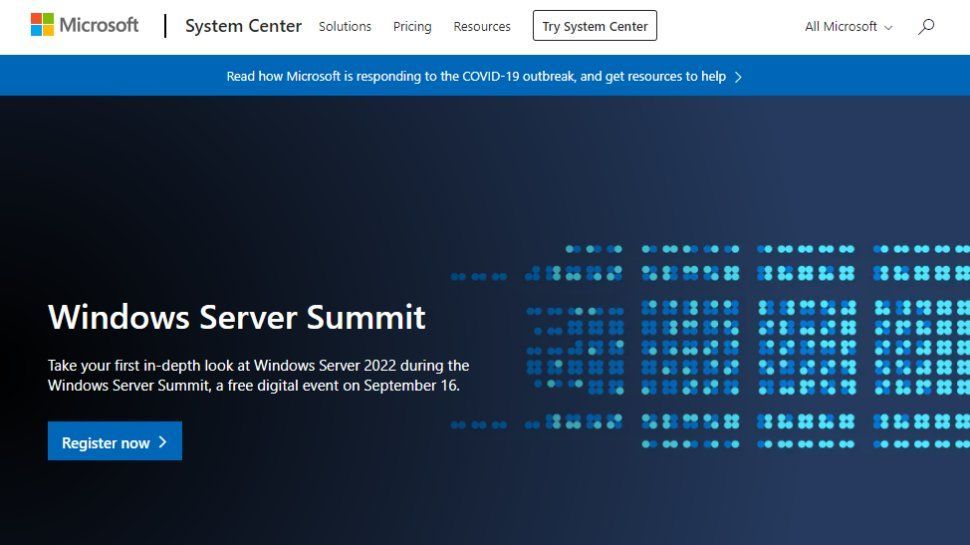
| Pros | Cons |
|---|---|
| Wide variety of features | Row 0 - Cell 1 |
| Cloud integration | Row 1 - Cell 1 |
| Multiple OS support | Row 2 - Cell 1 |
| Servers and desktops | Row 3 - Cell 1 |
| One click installs | Row 4 - Cell 1 |
When it comes to software, it’s hard to beat American tech giant Microsoft, and the company has a great tool for infrastructure management. Microsoft System Centre offers a full service suite of ISM tools developed for IT managers and experts.
This solution deals primarily with operating systems, malware protection, power consumption and IT hardware. It can work on a variety of devices and across different work applications.
In terms of core features, the software offers device management, power management, update management, endpoint protection and inventory reporting. You can also use it to deploy Windows 10 quickly and efficiently on new devices.
The System Centre is very versatile, allow you to manage infrastructure provisioning and deployment of virtual servers and datacentres, as well as configure networks, storage, computing, and security.
There are also a number of automation and self-service options to increase workflow efficiency. Tools are also made available to monitor, diagnose, and troubleshoot issues with the infrastructure or applications in order to maintain performance.
2. PagerDuty
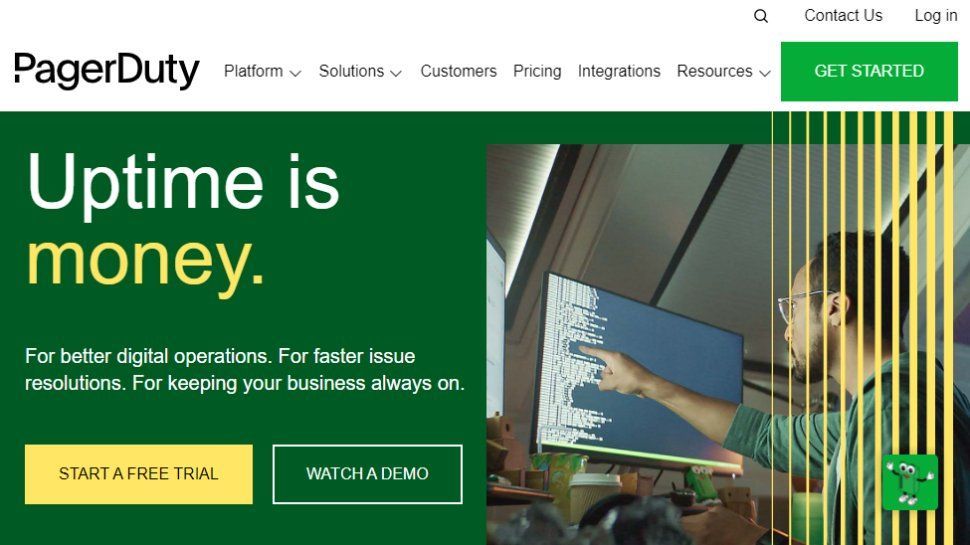
| Pros | Cons |
|---|---|
| Connect to any system | Row 0 - Cell 1 |
| Analyse machine and human data | Row 1 - Cell 1 |
| Identify incidents in real-time | Row 2 - Cell 1 |
| Intelligence and analytics | Row 3 - Cell 1 |
PagerDuty is an excellent infrastructure management solution that offers incident and dispatch features for multiple services and applications, and has been tailored for a plethora of businesses and industries.
This is primarily a system monitoring and alert platform, providing incident management through a web or mobile application. What’s great is that it can send crucial infrastructure alerts through phone, SMS and push notifications. It can even send them to specific people or groups via email.
Feature-wise, the software offers team scheduling management, real-time collaboration information through different devices and platforms, system and user reporting, always-on delivery and business-grade security. There are also integrations with apps and services such as Slack, AppDynamics, Desk.com, Watcher, ZenDesk and more than 200 others.
A free plan is available to help you experiment with the service, after which paid plans are available according to your needs. However, do note that some incident response and analytics options have an additional cost per user, regardless of the plan paid for.
3. Datadog
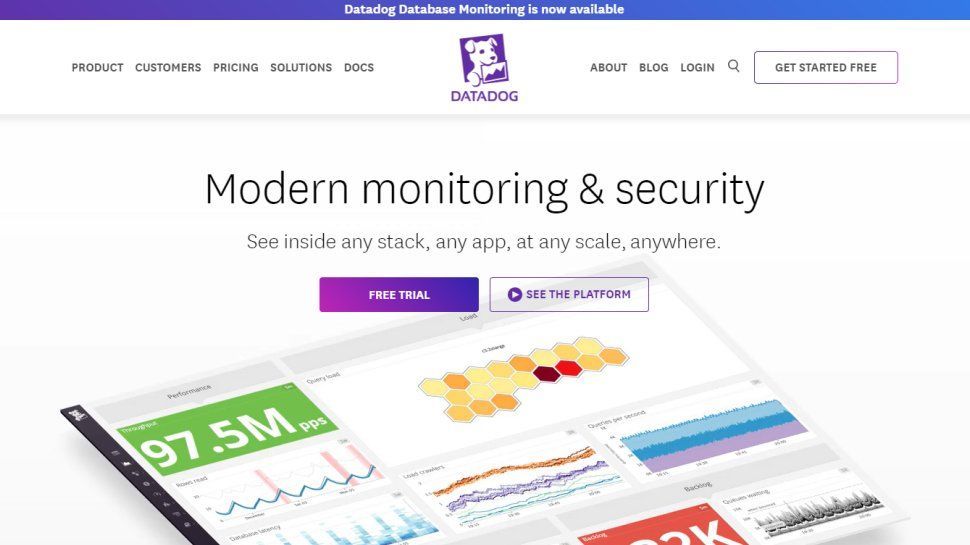
| Pros | Cons |
|---|---|
| Useful and varied integrations | Focused primarily on identifying problems |
| High-resolution metrics | Row 1 - Cell 1 |
| Free tier | Row 2 - Cell 1 |
If you’re after a cloud-based infrastructure management platform, you should check out Datadog. The system offers monitoring and analytics management for businesses of all sizes and sectors, as well as maintaining a rich and yet simple interface.
The software can work with a wide selection of systems, apps and devices, and there are integrations which cover the likes of Amazon Web Services, Google Cloud Platform, Slack, SQL Server, Docker, Apache, Campfire and even PagerDuty above. And like PagerDuty, you have the option to receive alerts – in this case, the software will alert you to performance problems via email.
You can create your own ISM dashboards, too. They offer high-resolution metrics and graphs covering data such as hosts, devices, tags, rates, ratios and averages. There’s also the ability to search for different metrics and events.
In terms of pricing, there's a free tier that provides core collection and visualisations features and allows connections to up to 5 hosts with one-day data retention. This allows new users to test the system and get used to dashboards.
After that, the Pro plan, when paid annually, and can cater for over 400 integrations, offers 15 month data retention, and unlimited alerts. An enterprise edition provides advanced administration tools, anomaly detection and forecasting reports, as well as on-boarding support and a dedicated support manager.
4. ConnectWise Automate
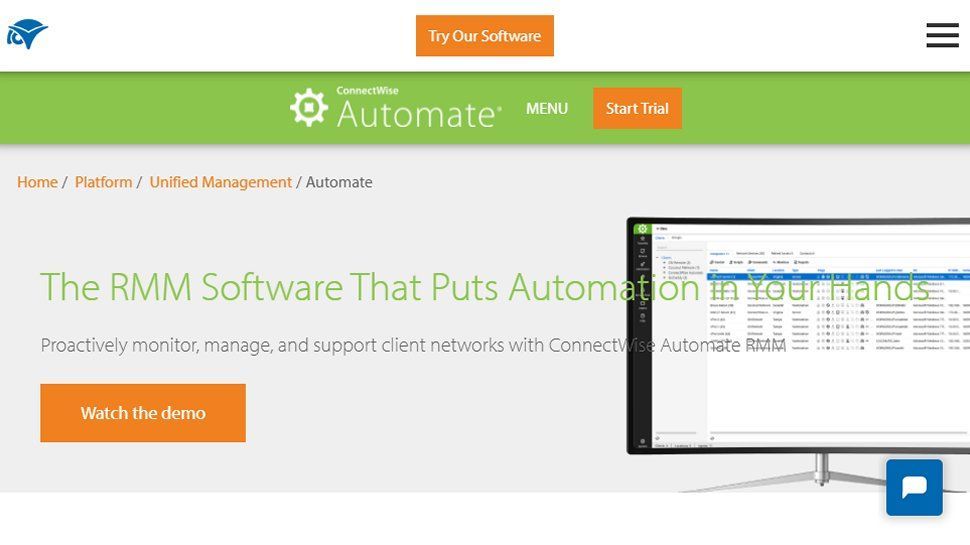
| Pros | Cons |
|---|---|
| Automation capabilities | Feature set isn’t that broad |
| Mobile apps | Row 1 - Cell 1 |
Formerly known as LabTech, ConnectWise Automate is a remote monitoring and management platform designed by IT service providers for technology companies, and it provides automated IT service.
With a focus on network management, this solution offers powerful cloud-based reporting and visibility into your IT capabilities, allowing you to perform almost any IT management task remotely and efficiently.
Meanwhile, on the automation front, ConnectWise will analyse all your systems, solve problems and reduce time spent visiting on-site assets. As well as being able to access the software from a PC, there’s also an app for iOS and Android devices.
Automation isn’t for everyone, but it’s certainly handy if you want to speed up internal processes. There’s a free trial available, so you don’t have to rush into making a final decision as to whether you want to adopt ConnectWise.
However, no flat-rate pricing is provided so you will need to contact ConnectWise for a quote.
5. Pulseway
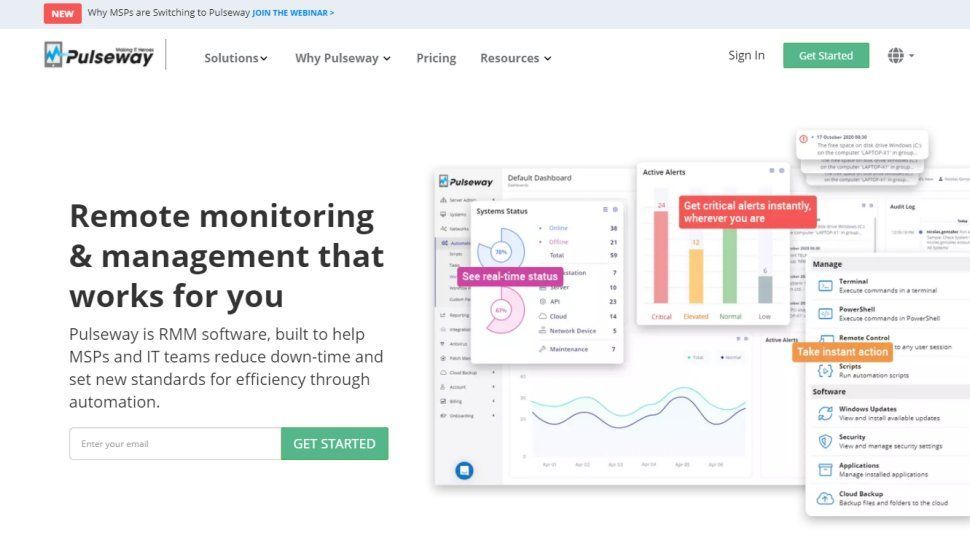
| Pros | Cons |
|---|---|
| Alerts for system issues | Lack of diverse reporting capabilities |
| Multi-platform mobile apps | Row 1 - Cell 1 |
Pulseway offers a Real-Time Remote Monitoring and Management platform that is one of the most popular and highly recommended services of its kind. It lets you monitor Windows, Mac and Linux computers, and provides you with real-time status on network performance, system resources and logged in users.
There’s a mobile app for iOS and Android devices, meaning you can track and manage all your IT resources remotely. You also get access to advanced IT automation so you don’t have to spend time on mundane tasks, such as maintenance, backup and security checks.
You can set up alerts, too. Like some of the other systems mentioned here, they’ll flag any system issues that could potentially lead to damage or failure, and you can tailor them based on your IT devices. Pulseway is suitable for smaller firms and businesses all the way up to large enterprises.
Pricing is based on the number of servers and workstations to monitor, with SNMP devices free of charge. Add-ons include endpoint security from Webroot, Kaspersky, or Bitdefender, as well as DNS protection.
6. HPE OneView
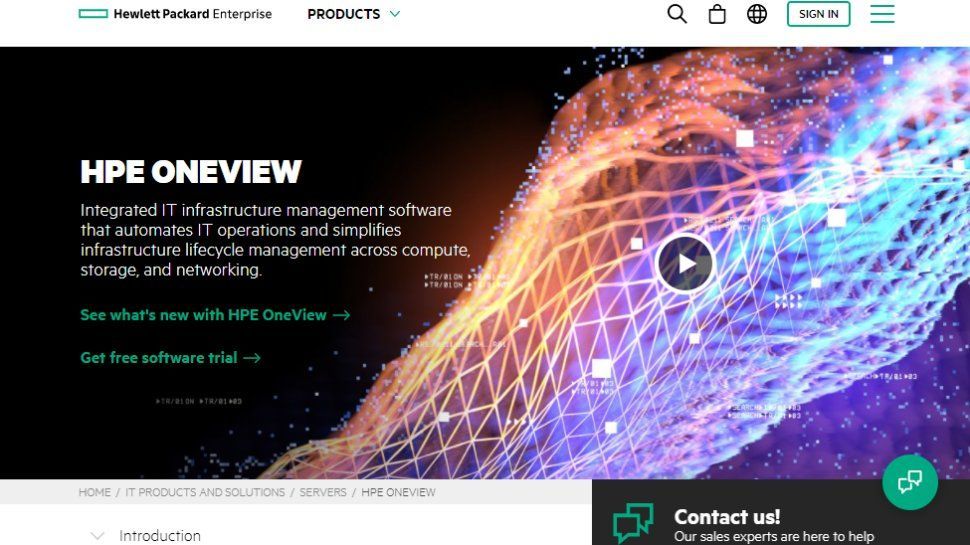
| Pros | Cons |
|---|---|
| Integrated IT infrastructure management | Row 0 - Cell 1 |
| Simplifies lifecycle management | Row 1 - Cell 1 |
| For computing, storage, and networking | Row 2 - Cell 1 |
OneView from Hewlett Packard Enterprise is an IT infrastructure management platform that allows computing, storage, and networking to be managed through software, with a focus on automation of routine tasks.
A combination of provided templates and software intelligence make it simple to set up reliable automated processes, while making it easier to improve overall flexibility and collaboration throughout your IT infrastructure.
As an established cloud services provider, HP makes it easy to simplify infrastructure lifecycle management across compute, storage, and networking with OneView.
Sign up today and you will receive a free copy of our Future Focus 2025 report - the leading guidance on AI, cybersecurity and other IT challenges as per 700+ senior executives
Brian has over 30 years publishing experience as a writer and editor across a range of computing, technology, and marketing titles. He has been interviewed multiple times for the BBC and been a speaker at international conferences. His specialty is Software as a Service (SaaS) applications, covering everything from office suites to IT service tools. He is also a science fiction and fantasy author, published as Brian G Turner.
-
 Trump's AI executive order could leave US in a 'regulatory vacuum'
Trump's AI executive order could leave US in a 'regulatory vacuum'News Citing a "patchwork of 50 different regulatory regimes" and "ideological bias", President Trump wants rules to be set at a federal level
-
 TPUs: Google's home advantage
TPUs: Google's home advantageITPro Podcast How does TPU v7 stack up against Nvidia's latest chips – and can Google scale AI using only its own supply?
-
 Global IT spending set to hit a 30-year high by end of 2025
Global IT spending set to hit a 30-year high by end of 2025News Spending on hardware, software and IT services is growing faster than it has since 1996
-
 AI tools are a game changer for enterprise productivity, but reliability issues are causing major headaches – ‘everyone’s using AI, but very few know how to keep it from falling over’
AI tools are a game changer for enterprise productivity, but reliability issues are causing major headaches – ‘everyone’s using AI, but very few know how to keep it from falling over’News Enterprises are flocking to AI tools, but very few lack the appropriate infrastructure to drive adoption at scale
-
 Pegasystems teams up with AWS to supercharge IT modernization
Pegasystems teams up with AWS to supercharge IT modernizationNews The duo aim to create deeper ties between the Blueprint, Bedrock, and Transform services
-
 Better together
Better togetherWhitepaper Achieve more with Windows 11 and Surface
-
 Transforming the enterprise
Transforming the enterpriseWhitepaper With Intel and CDW
-
 The top trends in money remittance
The top trends in money remittanceWhitepaper Tackling the key issues shaping the money remittance industry
-
 How Kantar revamped its IT infrastructure after being sold off
How Kantar revamped its IT infrastructure after being sold offCase Study Being acquired by a private equity firm meant Kantar couldn’t rely on its parent company’s infrastructure, and was forced to confront its technical shortcomings
-
 Deutsche Bank wraps up Postbank IT integration after bug-laden migrations
Deutsche Bank wraps up Postbank IT integration after bug-laden migrationsNews The IT merger is expected to generate annual savings of €300 million by 2025
